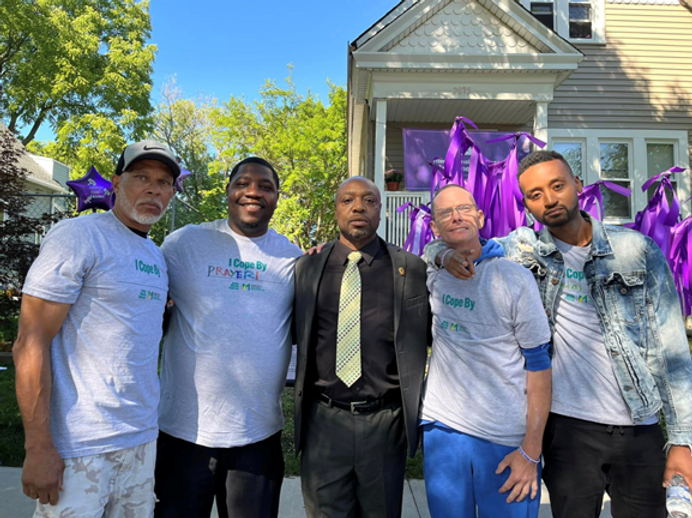Serenity Inns
- Dec 22, 2022
- 2 min read
Updated: Jun 20, 2024
Ministries Expanding to Enhance Services or Serve More People
Serenity Inns, an alcohol and drug treatment center in Milwaukee's Walnut Hill neighborhood, utilizes an innovative data-driven approach to treating addiction within underserved communities, e.g. data indicates that people typically relapse in the first 30 days of treatment. Rather than send residents off-site for counseling, Serenity Inns added an on-site counselor to reduce the risk of relapse and early program termination. Its dinner fellowship program, made possible by over 200 volunteers, helps provide nightly meals and community fellowship to those in the recovery program.
In 2023, significant strides were made to enhancing services, with 37 men admitted and 26 celebrating a graduation from the recovery program. The average daily occupancy was 12 men. Recent innovations include the addition of new support groups that address root causes, trauma, anger, and financial stability.
The most significant innovation is Serenity Inns’ new $2.4 million facility, which is intended to provide medically monitored treatment options and long-term financial stability for the organization. Guests will stay at the new facility when they enter the program. Following this intense (often medically monitored phase), they will move to the original facility across the street to continue treatment, address the root causes of addiction, and build stability.
Primary Focus Area: Drug and alcohol addiction treatment, housing, counseling
Lutheran Affiliation: ELCA
Location: 2825 W. Brown St, Milwaukee, WI 53208
Website: http://serenityinns.org/
Funding will support: In September 2023, Serenity Inns broke ground on a new treatment facility aimed at expanding the organization's reach and impact. The $2.5 million facility is being constructed on two former city-owned lots located across the street from Serenity Inns' current location at 2825 West Brown St.
The program offers a comprehensive continuum of care addressing physical, emotional, social, financial, and spiritual aspects of addiction. During the crucial initial 30 days, the focus is on on-site services, counseling, and case management to reduce the risk of relapse. Residents participate in evidence-based practices such as Cognitive Behavior Therapy and Trauma-Informed Care to develop crucial coping skills. By addressing systemic barriers and providing comprehensive, affordable care, the organization ensures that men from diverse backgrounds—59% African American, 30% Caucasian, 5% Hispanic, and 3% Native American in 2023—can access the support necessary for sustained recovery.












Comments